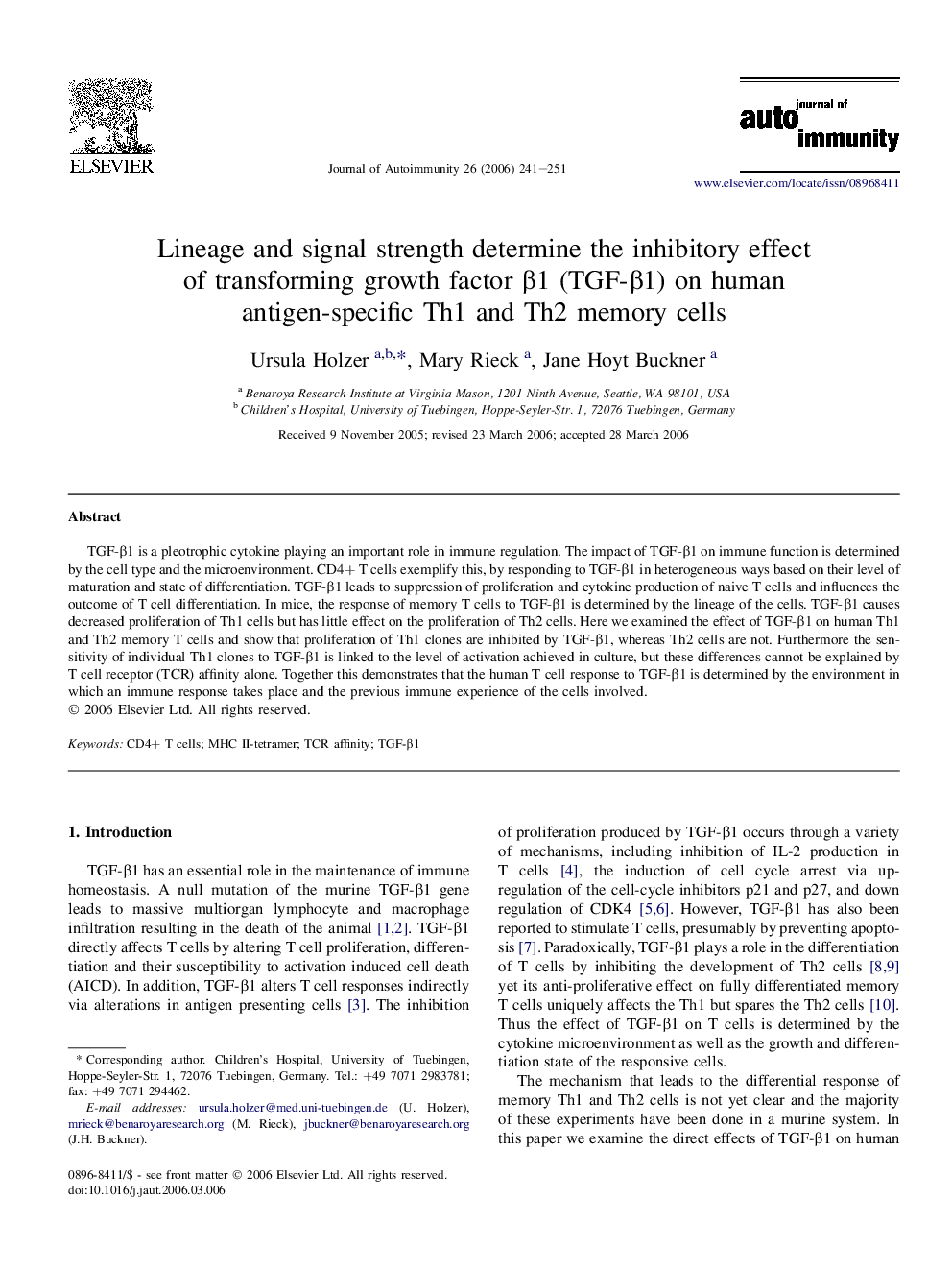| Article ID | Journal | Published Year | Pages | File Type |
|---|---|---|---|---|
| 3368564 | Journal of Autoimmunity | 2006 | 11 Pages |
TGF-β1 is a pleotrophic cytokine playing an important role in immune regulation. The impact of TGF-β1 on immune function is determined by the cell type and the microenvironment. CD4+ T cells exemplify this, by responding to TGF-β1 in heterogeneous ways based on their level of maturation and state of differentiation. TGF-β1 leads to suppression of proliferation and cytokine production of naive T cells and influences the outcome of T cell differentiation. In mice, the response of memory T cells to TGF-β1 is determined by the lineage of the cells. TGF-β1 causes decreased proliferation of Th1 cells but has little effect on the proliferation of Th2 cells. Here we examined the effect of TGF-β1 on human Th1 and Th2 memory T cells and show that proliferation of Th1 clones are inhibited by TGF-β1, whereas Th2 cells are not. Furthermore the sensitivity of individual Th1 clones to TGF-β1 is linked to the level of activation achieved in culture, but these differences cannot be explained by T cell receptor (TCR) affinity alone. Together this demonstrates that the human T cell response to TGF-β1 is determined by the environment in which an immune response takes place and the previous immune experience of the cells involved.
